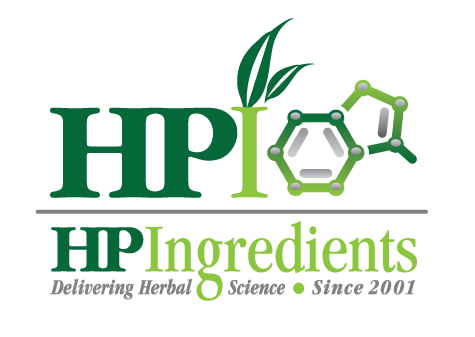Just a few weeks ago, in late August, commercials began airing that encouraged viewers to get their free flu shots. Local pharmacy chains began putting up signage touting “free flu shots!”
And soon to follow will be the viral fear of influenza. But you can lower your risk by incorporating several practices that will help strengthen and mobilize your immune system. An optimally functioning immune system is a preventative biological function – it keeps you healthy in part by keeping illness-causing “germs” from inflicting sickness.
We could recommend dietary changes but there are a couple of more universal actions that are effective: handwashing and stress management.
1
Washing hands often – and thoroughly — is a must. We tend to touch a lot of things, and then unconsciously scratch around our noses, eyes and mouth – all entry points to our inner sanctum for viruses to romp around. Note: do not rely too much on hand sanitizers and if you have a choice, always wash with soap and water instead of the sanitizer. Use the sanitizer when you can’t wash.
When buying sanitizers, the more alcohol content, the better. According to studies, sanitizers that contain no less than 60% alcohol content are more effective at disarming germs (viruses and bacteria) than those with no or low alcohol content. In fact, those with low alcohol content (less than 60%) have been shown to not work as well for all classes of bacteria, eg, cryptosporidium and norovirus. They also may cause some to develop resistance to the sanitizer, and third, they may reduce germ growth but don’t kill them directly. (Kampf, Clin Microbiol Rev. 2004 Oct;17(4):863-93.; Todd, J Food Prot. 2010 Nov;73(11):2128-40.)
2
Learn to manage stress. Everyone encounters stressors every single day (and at night, too). Stress is the life factor that unites all of us (even infants). From physical, mental, emotional and environmental, stress factors impact immune function to any degree. The healthier you are, the better you can withstand the stress.
However, learning how to manage stress can make a difference in how your immune system functions to respond to invaders. It’s only been since the early 1980s when the idea of the link between stress and compromised immune function came to light when psychologist Janice Kiecolt-Glaser and immunologist Ronald Glaser first noticed several animal studies showing a connection between stress and infection. During the next decade, the team studied stress and illness in medical students and found for example, that every year, during the three-day exam period, students’ exhibited fewer natural killer cells – known to fight infections. Further, their production of gamma inteferon dropped precipitously, and their T-cells exhibited weakened response. A meta-analysis of more than 300 studies of stress and immune function (Segerstrom and Miller), showed that stress of any duration negatively affected all aspects of immunity.
Everyone has their own ways of lessening stress – a bubble bath, listening to favorite music, binge-watching, a brisk walk in the woods, on and on. These should be indulged, as well as deep breathing, such as Dr. Andrew Weil’s 4-7-8. Stay away from any foods or beverages containing caffeine or other nervous system stimulants, as these will exacerbate the stress response when a stressor is encountered.
3
Supplements can be your immune system’s savior. We know that at the first signs of something taking hold – that scratchy throat, that full-headed/foggy sensation, taking high doses of zinc and vitamin C (along with chicken soup and tea), can help reduce the duration. And of course you can take more than the DV of C and zinc daily during the colder months.
But you can also take specific supplements that may help your immune system act more like an impenetrable fortress.
LJ100® Eurycoma longifolia (Tongkat Ali)is concentrated into a 100:1 water extract standardized to 40% glycosaponins, and greater than 22% eurypeptides.
In a randomized, double-blind, placebo-controlled, parallel study published in Phytotherapy Research 2016, 81 subjects with lower Scoring of Immunological Vigor (SIV) took 200mg of LJ100 daily or placebo for 4 weeks. At week 4, the SIV and immunological grades were significantly higher in the LJ100 group than those in the placebo group. The numbers of total, naïve, and CD4+ T cells were also higher in the LJ100 group, representing improved adaptive, or cell-mediated immunity. The LJ100 group had a younger immunological age (by four years) after only one month of supplementation. Lymphocytes were significantly higher; there was also an increasing trend in NK cells which plays an important part in defense against viral infection. The results suggest that ingestion of LJ100 enhances comprehensive immunity in both middle-aged men and women.
ParActin® is a patented extract from the plant called Andrographis paniculata, standardized to andrographolide, 14 deoxyadngrographolide, and neo-andrographolide — naturally occurring phytochemicals that have been shown by researchers to have beneficial actions in the human body, including supporting healthy immunity. ParActin® has been awarded US Patent #8,084,495 B2,
In a randomized, double-blind placebo-controlled study, 109 healthy students were given either 25 mg per day of ParActin® or placebo for three months. During the first month, there was no significant change between the groups, evaluated for presence or absence of common colds. However, during months two and three, there was a significant decrease in the incidence of common cold in the ParActin® group (30%), compared to the placebo group (62%).
In another randomized, double-blind placebo-controlled study of 158 adults already with common cold symptoms, 200 mg of ParActin® per day for five days were shown to significantly decrease intensity of symptoms compared to the placebo group.
According to ParActin® researcher Dr. Juan Hancke, at low dosage (50 mg), ParActin® stimulates natural defense mechanisms by activating NF kappa B, thereby increases the production of cytokines such as interferon gamma and interleukin 2 to help boost the immune response in winter. Once an individual begins to feel under the weather, 300 mg of ParActin® inhibits NF kappa B, thereby reducing the production of pro-inflammatory cytokines such as Interferon gamma and Interleukin 2 to help produce a better sense of wellness. The immune and inflammation balancing properties of ParActin® may assist the body to help fight a viral antigen while reducing the overload of cytokines.
Do you want to reduce your chances of catching a cold this flu season? Click here to learn more about ParActin®.


